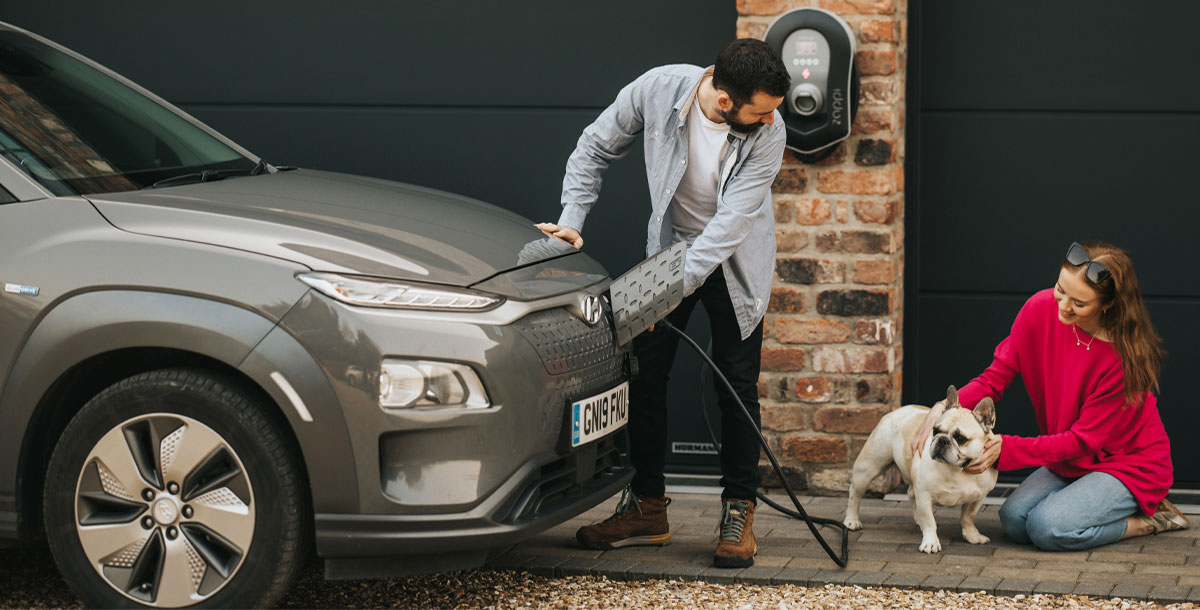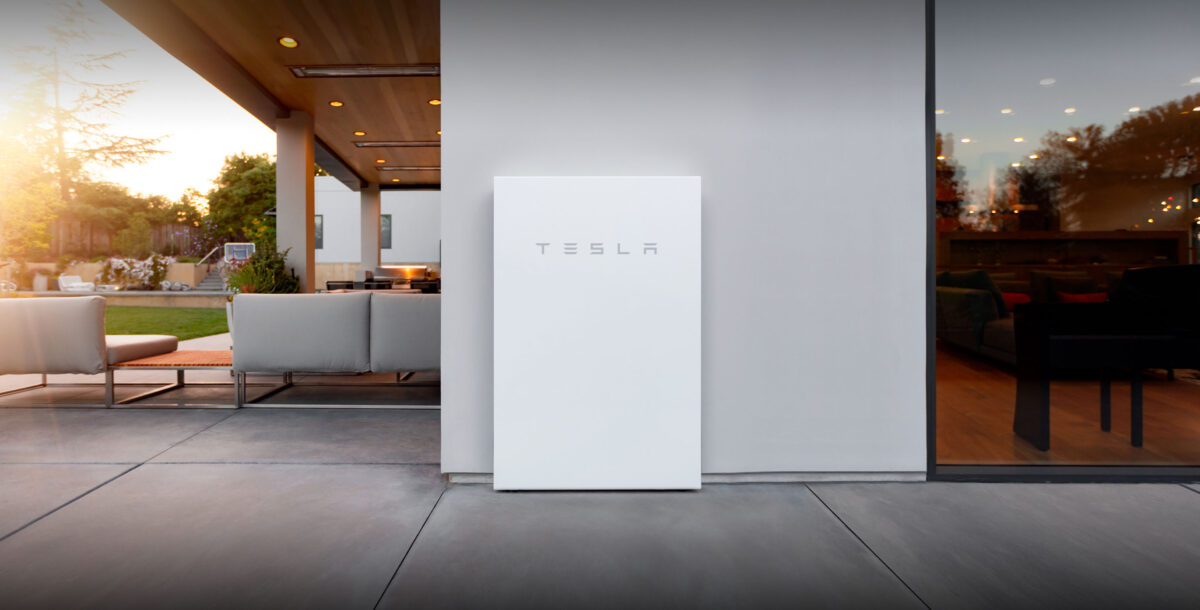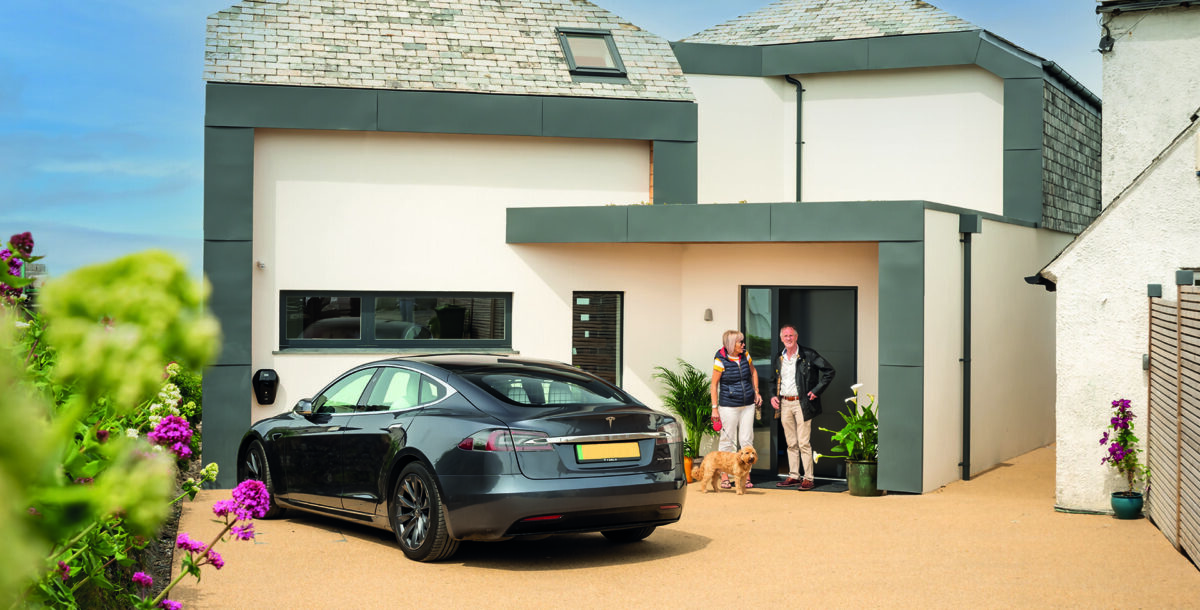Home EV charging: installation and tariffs
A guide to installing an electric vehicle charge point and keeping energy costs low
As part of the government’s policy to achieve net zero carbon by 2050, the sale of new petrol and diesel cars will be banned from 2030. So it’s unsurprising that many are already adopting electric vehicles. But range anxiety – the fear of running out of charge on a long journey – has been a problem for early adopters.
According to figures from the Department for Transport, there were 28,375 public electric vehicle charging devices available in the UK as of 1 January 2022, 5,156 of which were rapid chargers. Research carried out by ZenAuto in early 2022 found that there are 22 electric vehicles on the road for every public charge point. So while the number of EV charge points is increasing – since 1 January 2021, the number of public devices has increased by 37% – it still makes sense to have an EV charger installed at home.
Charlie Cook, founder and CEO of all-in-one charge point and EV-friendly energy tariff comparison service, Rightcharge, explains the benefits of installing a home EV charging point and how to get the best tariff.
The benefits of a home EV charger
Charging is faster: Having a home charge point means you can charge your EV three times faster than plugging it into a standard home socket.
Charging is cheaper: A smart home charge point also makes it easy to schedule your charging overnight – this off-peak energy use is not only over £300 per year cheaper, but also about 25% less impactful on the environment.
Intelligent charging: If you have solar panels, some smart charge points are also intelligent enough to only charge when you’re generating excess solar, so you can charge purely from a carbon-free energy source.
You can rent it out: Having a home EV charging point gives you the added option of renting it out via companies such as Just Charge, so you can earn some pocket money while also helping your neighbours.
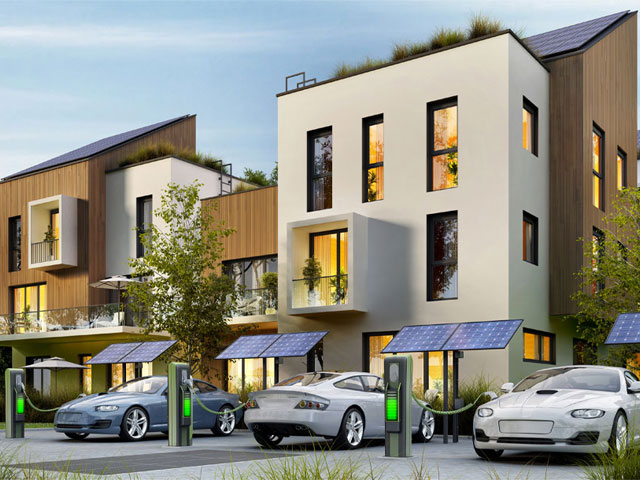
Slavun / Adobe Stock
Getting the best energy tariff for an EV charger
Use a comparison site: Get to grips with using a comparison system that can tell you the most effective energy tariff for you based on your own home electricity use and charging habits. By visiting the Rightcharge site and answering a few preliminary questions, you can get a bespoke recommendation on the best EV tariff for your individual circumstances in a matter of minutes.
Budget enough to get the right charger for your needs: At the cheapest end of the spectrum, a standard installation with the charger included should cost around £900. At the top end of the scale, it’s about £1,400 for a premium home charge point. Other features that will alter the price you pay are factors such as solar charging and aesthetics.
Get a charger that offers some flexibility: Your charger needs to give you the flexibility to meet all your charging needs, and these will vary depending on your circumstances. Essentially it needs to be able to let you: fast charge, value charge (charge at off-peak times) and eco charge (charge as sustainably as possible using renewable energy).
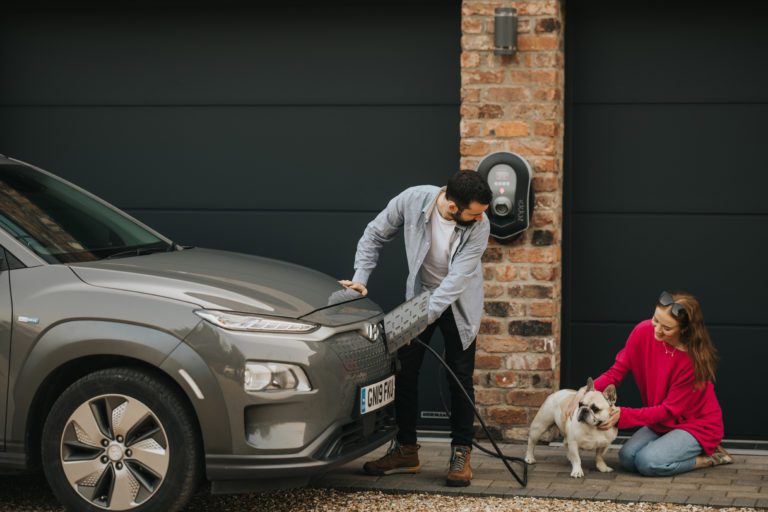
The zappi home EV charging unit from myenergi
Tethered or untethered?
An untethered EV charger has a cable that can be disconnected when not in use. You will probably be able to order a cable at the time of the installation. A tethered EV charger means the charging cable is permanently attached to the charging unit.
Installing an EV charger
In order to install an EV home charger, you need to either own the property or have permission from your landlord. You’ll also need a Wi-Fi connection and off-street parking.
Once you have decided on your charger, Rightcharge will collect information about your property such as where you’d like it fitted and your current energy set-up. Then they’ll pass this your chosen installation company who will provide you with a quotation based on your needs.
Once approved, the company contacts the Distribution Network Operator (DNO) to check your electricity supply is up-to-date. The installation is then scheduled within three-to-four weeks and should take no longer than three-to-four hours, depending on the groundworks involved.
The installer should then demonstrate the app that supports the smart charging scheduling feature, so you know how everything works. Then you’re good to go.

